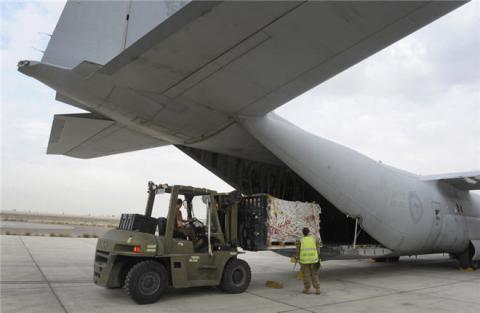If economics drives politics, then it will also drive conflict.
An economic imperative for defence – Dr Nitin Gupta
If economics drives politics, then it will also drive conflict.
‘Economics drives politics’ – this adage has validated itself over centuries. But an even more apt adage for the 21st century will be, ‘Economics drives conflict’. This is because the foundational drivers of conflicts and security challenges are increasingly economic in nature, and effectively dealing with them will require a sound understanding of both economic conditions and conceptual principles. As such, economics makes two important contributions towards the management of defence-related challenges: Firstly, it helps to comprehend and evaluate the significant economic forces fuelling socio-political pressures in societies. And secondly, it provides useful conceptual frameworks that help to deal with complex and unfamiliar problems in a structured and logical manner.
These benefits of these contributions directly arise from the two defining traits of all societies, and which are only growing more dominant in the 21st century. These traits – scarcity and uncertainty – are also the raisons d’etre of economics.
Scarcity
Scarcity is an inexorable fact of life. The more intense the scarcity, the more intense is the competition to acquire that which is scarce, and consequently, the grievances of those that lose out in this competition. It is the resulting sense of deprivation that makes people vulnerable to radical ideologies. The importance of this point cannot be overstated.
In the modern era scarcities abound, be they of jobs, food, money, commodities, energy, water, and other such essentials of life. In this information age, even attention is becoming scarce. These scarcities are becoming more acute than ever been before, because:
-
global population is growing rapidly;
-
globalisation and technology growth are resulting in hyper-competition and ‘jobless growth’;
-
rising debt levels after the 2008 Global Financial Crisis are straining national budgets to the breaking point.
Scarcities affect countries as acutely as they do radical non-state groups. Both need financial resources to maintain their fighting capability. Both also need commodity resources to maintain their productive capability and to be able to compete in their respective ‘markets’. Competitiveness comes from the ability to address critical scarcities while establishing a market share and, if possible, market dominance. If the examples of Al Qaeda and ISIS teach us anything, it is that they are driven by the goal of complete dominance in areas where they compete. In order to achieve this they maintain their resources streams through various forms of trafficking (drugs, weapons, people), and attempt to ‘sell’ a narrative to attract and retain their target audience. Allied efforts to defeat them have been as much about military dominance as it is about disrupting their revenue streams and undermining their ‘market share’.
A critical lesson of history is that some of the most intractable conflicts arise from contests over scarce resources and markets. Preparing for future conflicts in turn will require understanding how the underlying scarcities in societies are evolving as a result of technological and other changes.
Uncertainty
Uncertainty and constant change are pervasive clichés in the current times. Technologies are constantly changing, and creating constant uncertainty. Technology growth has allowed national economies to be increasingly integrated into global production networks, as well as into networks of financial, energy and communication infrastructures. The onset of new technologies, such as artificial intelligence, social media, big data and automation, are still in their early years but are already upending the socio-political and economic order. Their full impact over the coming decades cannot even be fully comprehended presently, but are certain to have significant implications for defence and security.
One evident implication is that increasing technology adoption results in ‘jobless growth’, where fewer people have the ability to produce greater amounts of output. Technology also results in an ‘asymmetry of values’, where those with white-collar skills such as management and sales are valued far more than those with blue-collar skills (production skills). These are already increasing the economic vulnerability and uncertainty for large swathes of population around the world. In the words of former US Secretary of State Madeleine Albright, these are the groups most likely to be attracted by the simplistic characterisations of radical, violent ideologies.
Moreover, the information and communication technology (ICT) revolution has created a problem without precedent in human history. It is that of too much information, and associated with it, that of alternative facts. The excess information we face means that it is possible to justify practically any perspective or position with data. Consequent disagreements over settled facts quickly gives way to mutual demonization and dehumanisation of the ‘other’ group which, in turn, makes it easy to offend against them and thus ignite a cycle of retaliatory conflict. This results in rigid polarisation on one hand, and persistent ‘social construction’ on the other. Problems, including those relating to defence and security, are less about objective characteristics, and more about how they are framed, constructed and shared. In the post-9/11 era, combating global terrorism has been as much about militarily vanquishing terrorists as it is about combating their regressive narratives. It is also these narratives that are proving most difficult to overcome, precisely as a result of ICT.
The net result
The foregoing discussion packs a lot of material in a short space, but the crux of it is that defence-related problems invariably have causes and drivers that are economic in nature. It is also amply clear that these problems are complex and constantly evolving, and addressing them will require, at the very least, engaging in difficult and politically sensitive conversations about their causes, scope and impacts. Economics can contribute to these conversations by providing appropriate analysis and context to those tasked with actually making the decisions regarding these problems.
Secondly, it is essential to acknowledge that these problems are multi-dimensional in nature, and addressing them will require considering them from diverse perspectives. To this end, economics can make an invaluable contribution by providing conceptual frameworks from a diverse range of sub-disciplines such as information and institutional economics, political economy and production efficiency, behavioural economics and public economics, trade and network economics, strategic interaction and economic history, amongst others.
Defence planners will be well-served by an economic way of thinking.



